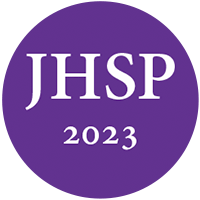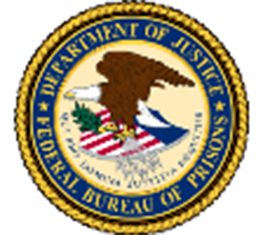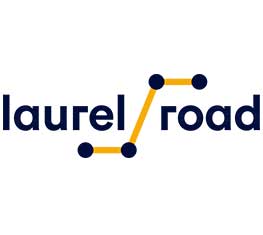The professional home for health service psychologists.
Join a community of 15,000 psychologists and trainees.
Learn it today. Apply it tomorrow.
Connecting you to what you need in your career.
Making a difference.
La Spata, M. G. (2019). Assessment and intervention for individuals with CHARGE syndrome. Journal of Health Service Psychology, 45, 58–64.
CHARGE syndrome is a rare genetic disorder that is regarded as the leading cause of deaf-blindness. Although CHARGE syndrome is typically diagnosed by a medical geneticist, psychologists may be asked to evaluate and treat behavioral and emotional difficulties that manifest from the multisensory problems these individuals face. In addition, psychologists will most likely work with multiple disciplines to address the unique needs of individuals with CHARGE syndrome. This article will provide an overview of CHARGE syndrome and assessment and treatment considerations for psychologists.
Registrants can read the full article on CE.NationalRegister.org
Alpern, G.D. (2007). Developmental Profile (3rd ed.). Torrance, CA: Western Psychological Services.
Bernstein, V., & Denno, L.S. (2005). Repetitive behaviors in CHARGE syndrome: Differential diagnosis and treatment options. American Journal of Medical Genetics, 133A, 232 – 239.
Blake, K. D., Salem-Hartshorne, N., Daoud, M. A., & Gradstein, J. (2005). Adolescent and adult issues in CHARGE syndrome. Clinical Pediatrics, 44, 152-159.
Brown, D. (2005). CHARGE syndrome “behaviors”: Challenges or adaptations? American Journal of Medical Genetics, 133A, 268-272.
Brown, D. (n.d.). Vision issues for people with CHARGE syndrome [webcast]. Retrieved from http://www.perkinselearning.org/videos/webcast/vision-issues-people-charge-syndrome
The CHARGE Syndrome Foundation. (2018). Overview. Retrieved from https://www.chargesyndrome.org/about-charge/overview/
Dunn, W. (2014). Sensory Profile (2nd ed.). San Antonio, TX: Pearson.
Guerra, L. A. (2008). Speech and language therapy. CHARGE syndrome foundation professional packet. Retrieved from https://www.chargesyndrome.org/for-professionals/psychologists-behavior-therapists/
Hale, C. L., Niederriter, A. N., Green, G. E., & Martin, D. M. (2016). Atypical phenotypes associated with pathogenic CHD7 variants and a proposal for broadening CHARGE syndrome clinical diagnostic criteria. American Journal of Medical Genetics, 170A(2), 344-354. doi: 10.1002/ajmg.a.37435
Hartshorne, T. S., & Cypher, A. D. (2004). Challenging behavior in CHARGE syndrome. Mental Health Aspects of Developmental Disabilities, 7(2), 41 – 52.
Hartshorne, T. S., Grialou, T. L., & Parker, K.R. (2005). Autistic-like behavior in CHARGE syndrome. American Journal of Medical Genetics, 133A, 257-261.
Hartshorne, T. S., & Hissong, K. N. (2014). CHARGE Syndrome: An Introduction for Speech-Language Pathologists. SIG 16 Perspectives on School-Based Issues, 15(2), 94-102. doi:10.1044/sbi15.2.94.
Hartshorne, N., Hudson, A., MacCuspie, J., Kennert, B., Nacarato, T., Hartshorne, T., & Blake, K. (2016). Quality of life in adolescents and adults with CHARGE syndrome. American Journal of Medical Genetics, 9999, 1-10.
Hartshorne, T. S., Nicholas, J., Grialou, T. L., & Russ, J. M. (2007). Executive function in CHARGE syndrome. Child Neuropsychology, 13, 333-344.
Hartshorne, T. S., Stratton, K. K., Brown, D., Madhavan-Brown, S., & Schmittel, M. C. (2017). Behavior in CHARGE syndrome. American Journal of Medical Genetics, 175C, 431 – 438. doi: 10.1002/ajmg.c.31588
Hefner, M. (1999). Diagnosis, genetics and prenatal diagnosis in CHARGE. Retrieved from https://www.chargesyndrome.org/wp-content/uploads/2016/05/Diagnosis-Genetics-and-Prenatal-Diagnosis.pdf
Hefner, M. (2010, Summer). Diagnosis of CHARGE syndrome. Retrieved from https://www.chargesyndrome.org/wp-content/uploads/2016/06 /charge_accounts_newsletter_summer_2010.pdf
Janssen, N., Bergman, J. E. H., Swertz, M. A, Tranebjaerg, L., Lodahl, M., Schoots, J., …
Hoefsloot, L. H. (2012). Mutation update on the CHD7 gene involved in CHARGE syndrome. Human Mutation, 33(8), 1149–1160. DOI: 10.1002/humu.22086
Kruger, C. (2000, Summer). Personal account. CHARGE Accounts, 10(2), 3.
Majors, M. M., & Stelzer, S. (2008). Educational needs of children with CHARGE syndrome. CHARGE syndrome foundation professional packet. Retrieved from https://www.chargesyndrome.org/for-professionals/psychologists-behavior-therapists/
National Library of Medicine. (2018, December 18). CHARGE syndrome. Retrieved from https://ghr.nlm.nih.gov/condition/charge-syndrome
Nicholas, J. (2005). Can specific deficits in executive functioning explain the behavioral characteristics of CHARGE syndrome: A case study. American Journal of Medical Genetics, 133A, 300-305.
Rapp, A. M., Bergman, R. L., Piacentini, J., & McGuire, J. F. (2016). Evidence-based assessment of obsessive-compulsive disorder. Journal of Central Nervous System Disorders, 8, 13-29. doi: 10.4137/JCNSD.S38359
Salem-Hartshorne, N., & Jacob, S. (2005). Adaptive behavior in children with CHARGE syndrome. American Journal of Medical Genetics, 133A, 262-267.
Schopler, E., Van Bourgondien, M. E., Wellman, G. J., & Love, S. R. (2010). Childhood autism rating scale (2nd ed.). Torrance, CA: Western Psychological Services.
Schrank, F. A., Mather, N., & McGrew, K. S. (2014). Woodcock-Johnson IV. Rolling Meadows, IL: Riverside Publishing.
Sparrow, S. S., Cicchetti, D. V., & Saulnier, C. A. (2016). Vineland Adaptive Behavior Scales (3rd ed.). Bloomington, MN: Pearson.
Stratton, K. K., & Hartshorne, T. S. (2012). The initial validation of a non-vocal multidimensional pain assessment instrument for individuals with CHARGE syndrome. (Unpublished dissertation.) Central Michigan University, MI.
Thelin, J. W., & Krivenki, S. E. (2008, May). Audiologic issues in CHARGE syndrome. Retrieved from https://www.asha.org/Articles/Audiologic-Issues-in-CHARGE-Syndrome/
Thelin, J. W., & Swanson, L. A. (2006). CHARGE syndrome: Multiple congenital anomalies including disorders of all senses and speech, language, feeding, swallowing, and behavior. The ASHA Leader, 11(14), 6-7.
Van Dijk, J. P. M., & de Kort, A. (2005). Reducing challenging behaviors and fostering efficient learning of children with CHARGE syndrome. American Journal of Medical Genetics, 133A, 273-277.
Vissers, L.E.L.M., van Ravenswaaij, C. M. A., Admiraal, R., Hurst, J. A., de Vries, B.B.A., & Janssen, I.M. (2004). Mutations in a new member of the chromodomain gene family cause CHARGE syndrome. Nature Genetics, 36, 955-957.
Wachtel, L.E., Hartshorne, T. S., & Dailor, A.N. (2007). Psychiatric diagnoses and psychotropic medications in CHARGE syndrome: A pediatric survey. Journal of Developmental and Physical Disabilities, 19, 471-483.
Wechsler, D. (2014). Wechsler Intelligence Scale for Children (5th ed). Bloomington, MN: Pearson.
Wrightslaw. (2019). Early intervention (Part C of IDEA). Retrieved from https://www.wrightslaw.com/info/ei.index.htm
Copyright © 2025 All rights reserved. National Register of Health Service Psychologists











